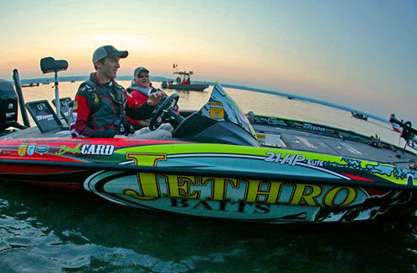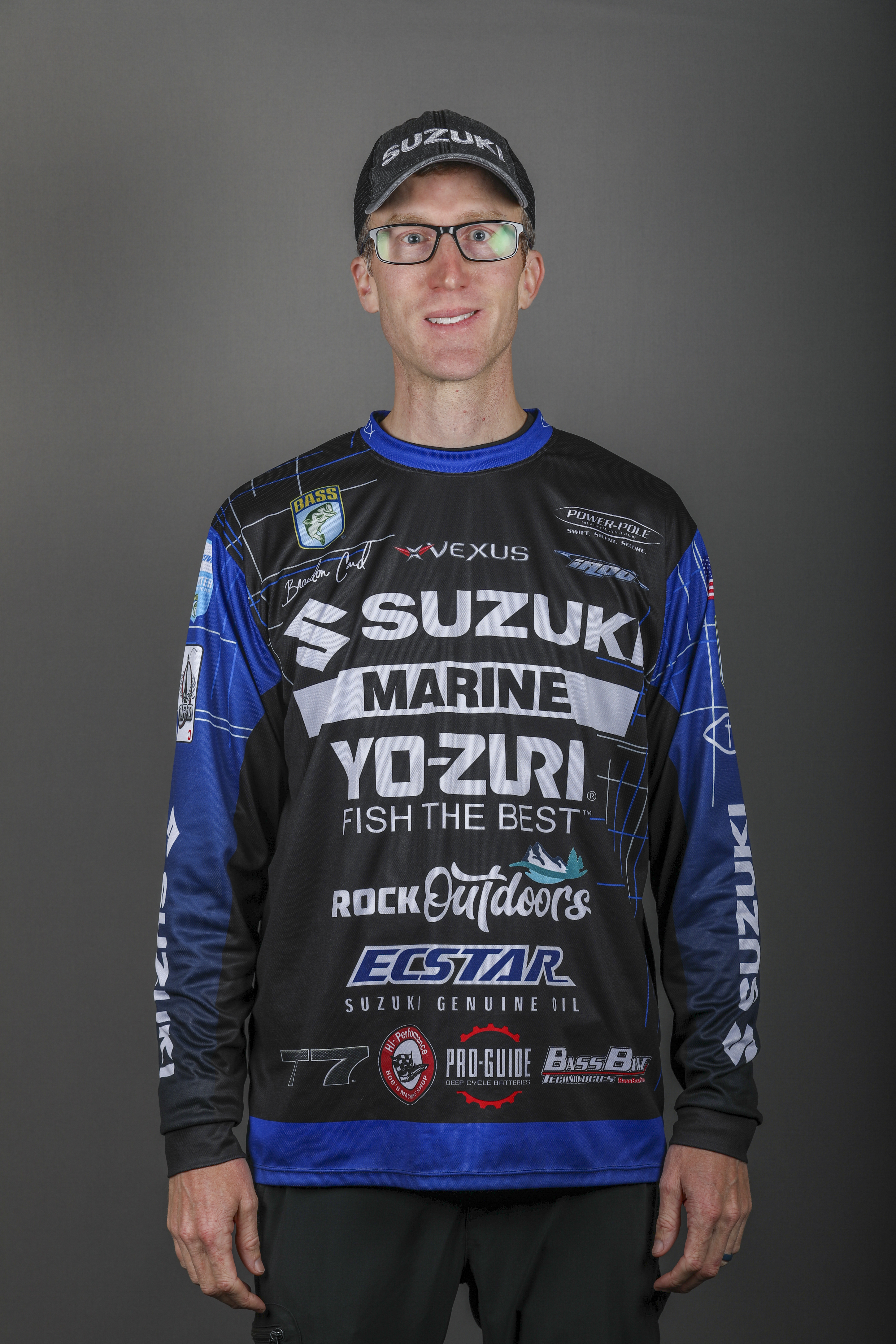
Editor’s Note: Elite Series pro Brandon Card wrote this column during the final event of the 2012 Elite season. He went on to claim the title of 2012 Elite Series Rookie of the Year.
Today marks the final Elite event of the 2012 season, and everyone in the field has a goal in mind. Whether it is Toyota Tundra Bassmaster Angler of the Year, qualifying for the Toyota Trucks All-Star week postseason, or earning a Bassmaster Classic berth, everyone has a lot on the line. For me, it is no different. I would love to have a solid event and achieve several of the goals I set at the start of the 2012season.
Looking back over the tournaments I have fished in my life, each was the most important at the time. My first Bassmaster College Series event seemed like a huge deal at the time. I fished a college event here on Oneida in 2007 and, at the time, it seemed like the most important tournament in the world. Each Bass Pro Shops Southern Open event I fished in 2011 to qualify for the Elites was hugely important. And, this year, each Elite event felt significant. Truth be told, each tournament I fish is important to me. Over the break from the last Elite event, I sought to look deeper into why, beyond just the emotion of the event.
Everyone says that time on the water is important and there is no substitute for it. We have all heard that from pros over the years. A book I recently began reading helped me quantify just how important it is.
In his book Outliers: The Story of Success, Malcolm Gladwell reveals his findings from studying successful people and the factors that made them succeed. He describes what he calls the 10,000-hour rule. Basically, if you want to become successful at any endeavor in life, you need to spend at least 10,000 hours practicing it. We all know that Mozart, Bill Gates and The Beatles were all born with innate talent in their respective fields. Gladwell looked deeper and found that their surroundings impacted their opportunities to refine that talent. Being born with talent was just the beginning.
How many hours have you spent practicing the craft of bass fishing? I asked myself that question to see where I was on this hour scale. Growing up, I fished for all different species with family and learned the basics of casting, baiting hooks and just being around the water. Starting at age 13 and through to age 17, I started getting serious about bass fishing. I figure I spent 50 days a year on the water for 9 hours a day during those years. From 18 to 23, I fished 75 days a year of 9 hours on average. The last couple of years since graduating college, I fished 150 days of at least 9 hours. All totaled up that comes out to 9,000 hours.
Nine thousand hours is a lot of time on the water, but after this exercise I confirmed what I already knew – I have a lot to learn! That fact motivates me to fish even more. I want to finish as high as I can at each event to qualify to fish more events and to be able to finance more fishing trips and tournament entries.
This exercise also makes me truly appreciate the factors that have allowed me to fish these 9,000 hours. First and foremost, I have my parents to thank for taking me fishing and supporting me at a young age. Fishing with my older brother Jordan made up thousands of those hours and were so important to my learning curve. College fishing and the Kentucky B.A.S.S. Federation accounted for another few thousand of those hours. Finally, this year on the Elites would not have been possible without the financial and moral support of my sponsors: Jethro Baits, Pinnacle, Empire Covers, DUO, Onyx, Triton, Mercury, Optima Batteries, Taylor Man’s, Trilene, Spiderwire, Power-Pole and Buff.
Whether each of us leaves Oneida this weekend having reached our goals or not, we will all leave with more hours on the water and more knowledge for the next event.
Dare to fail.





